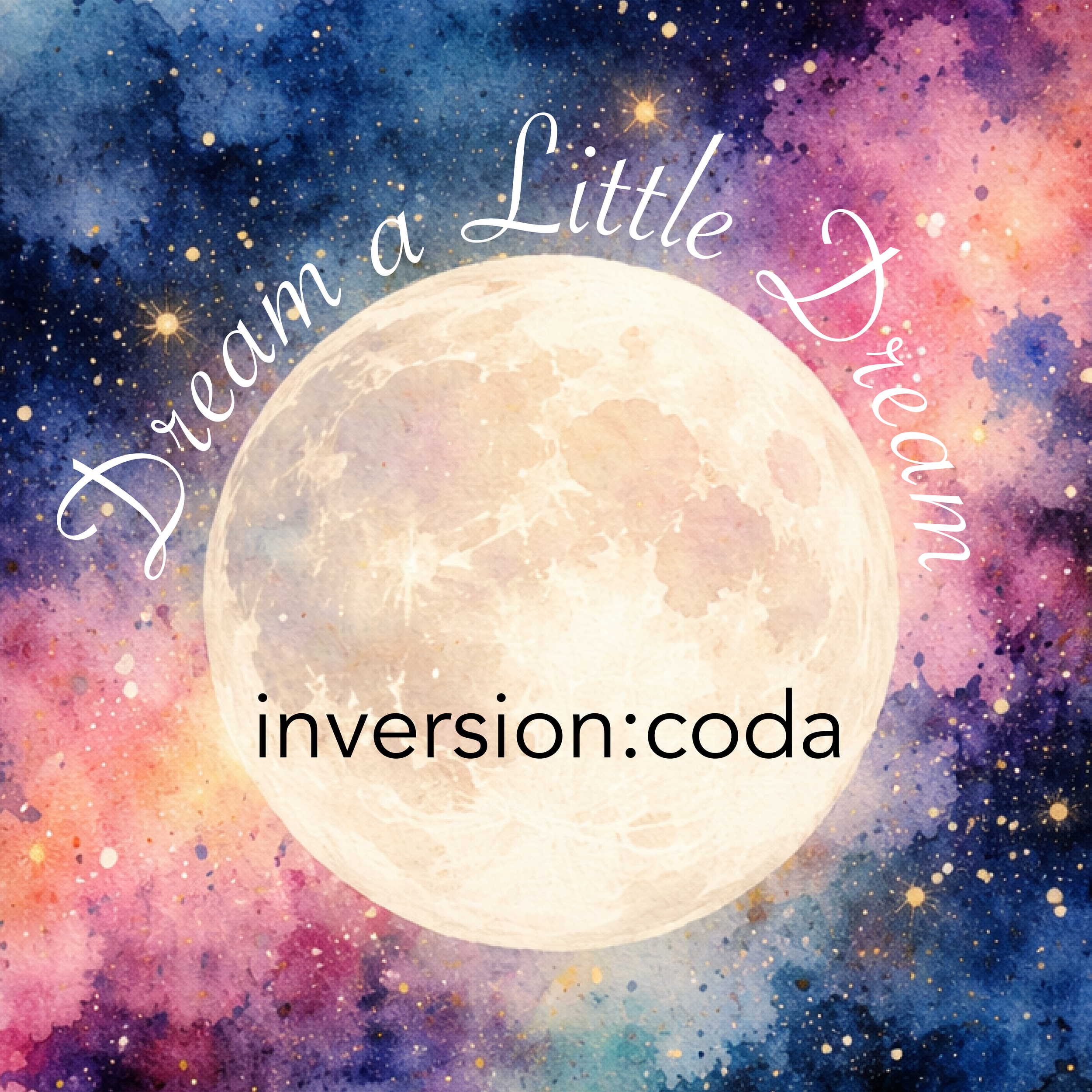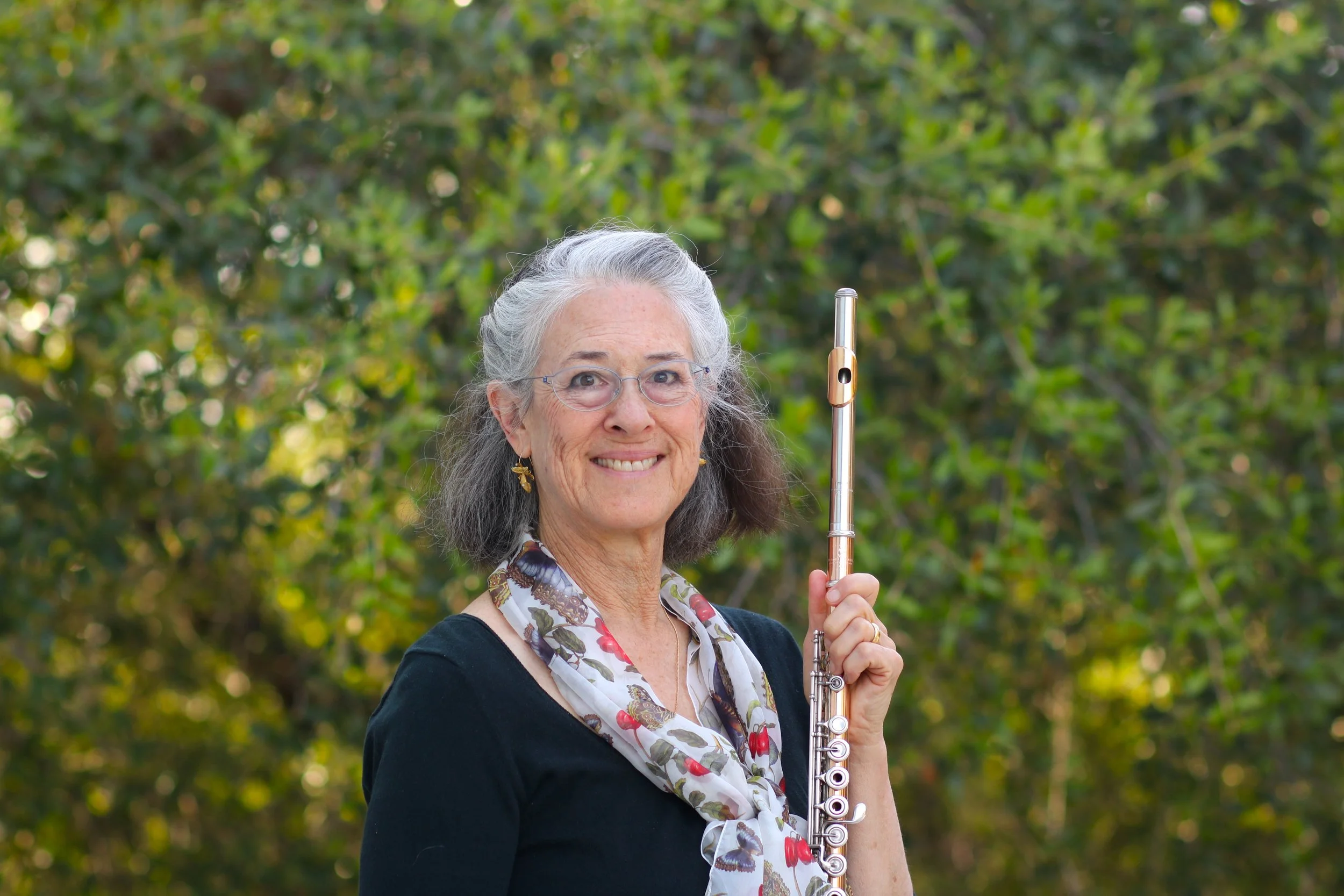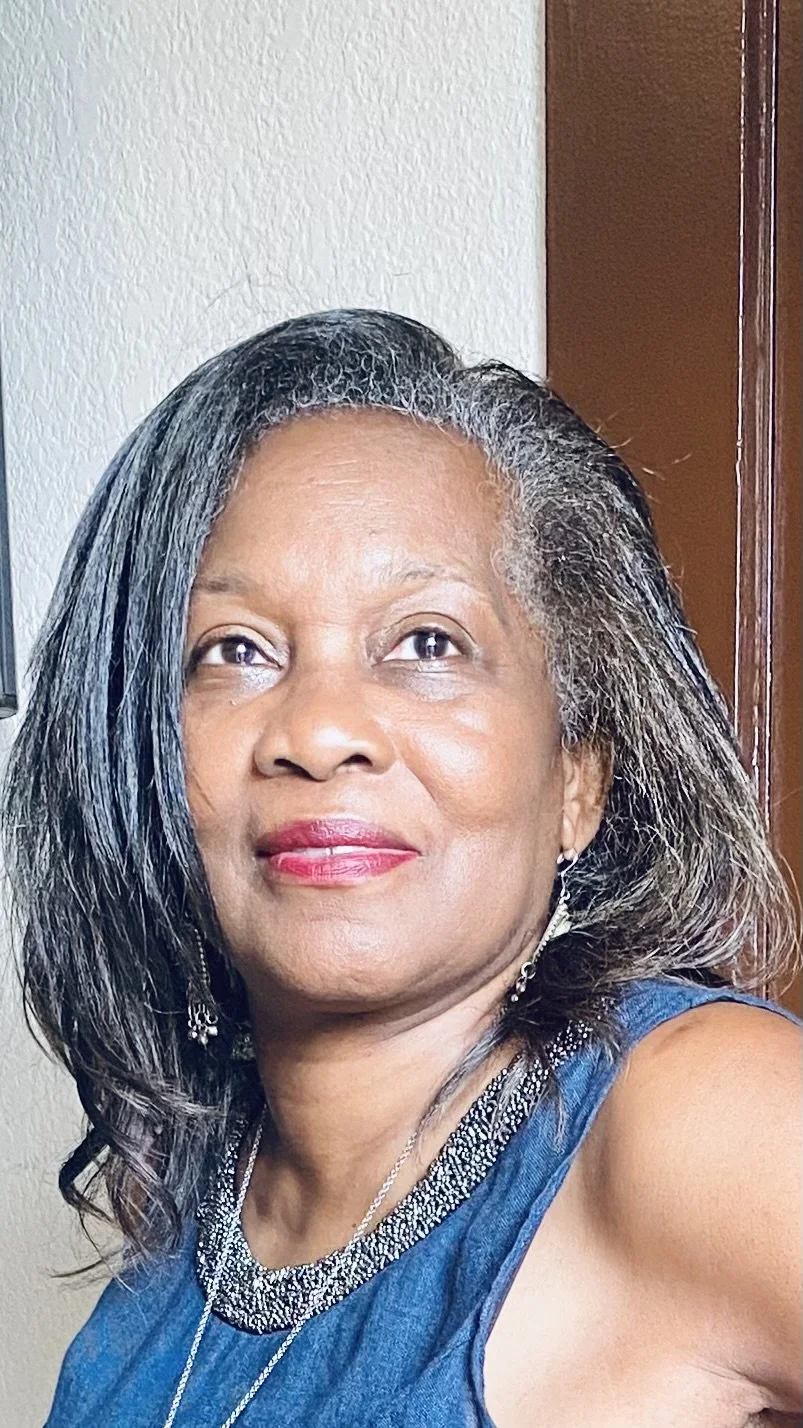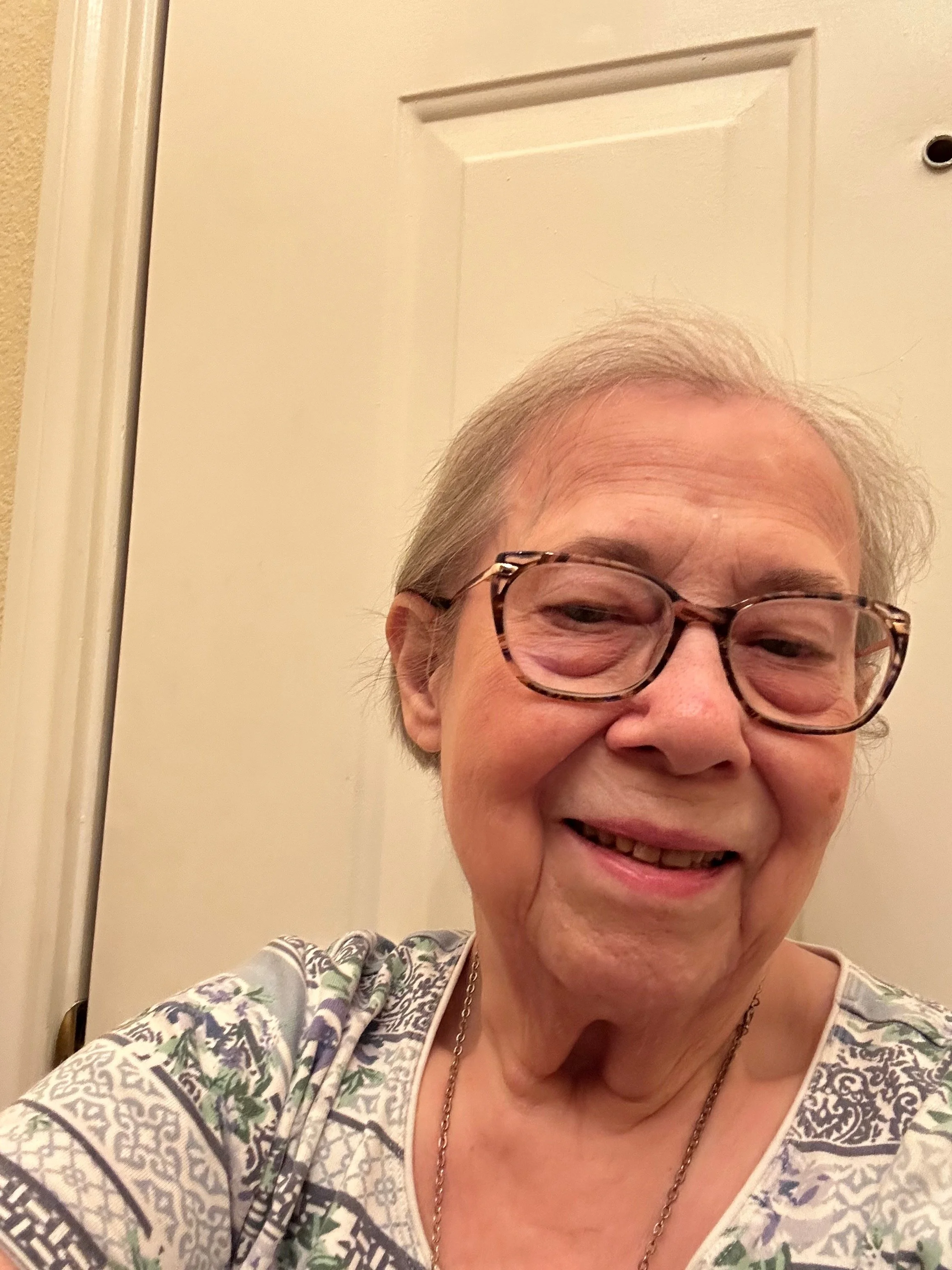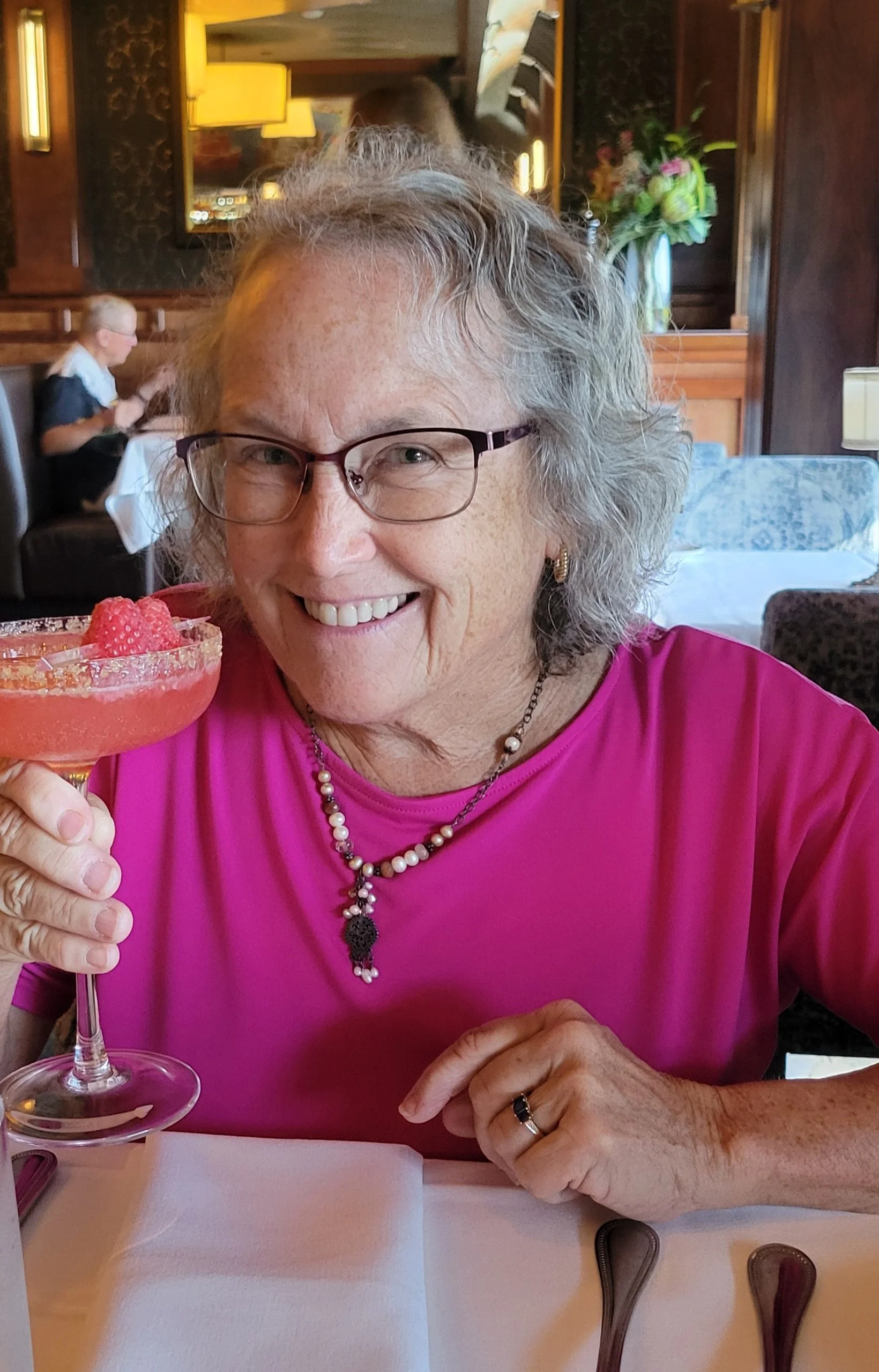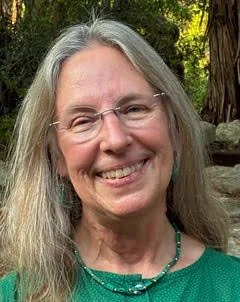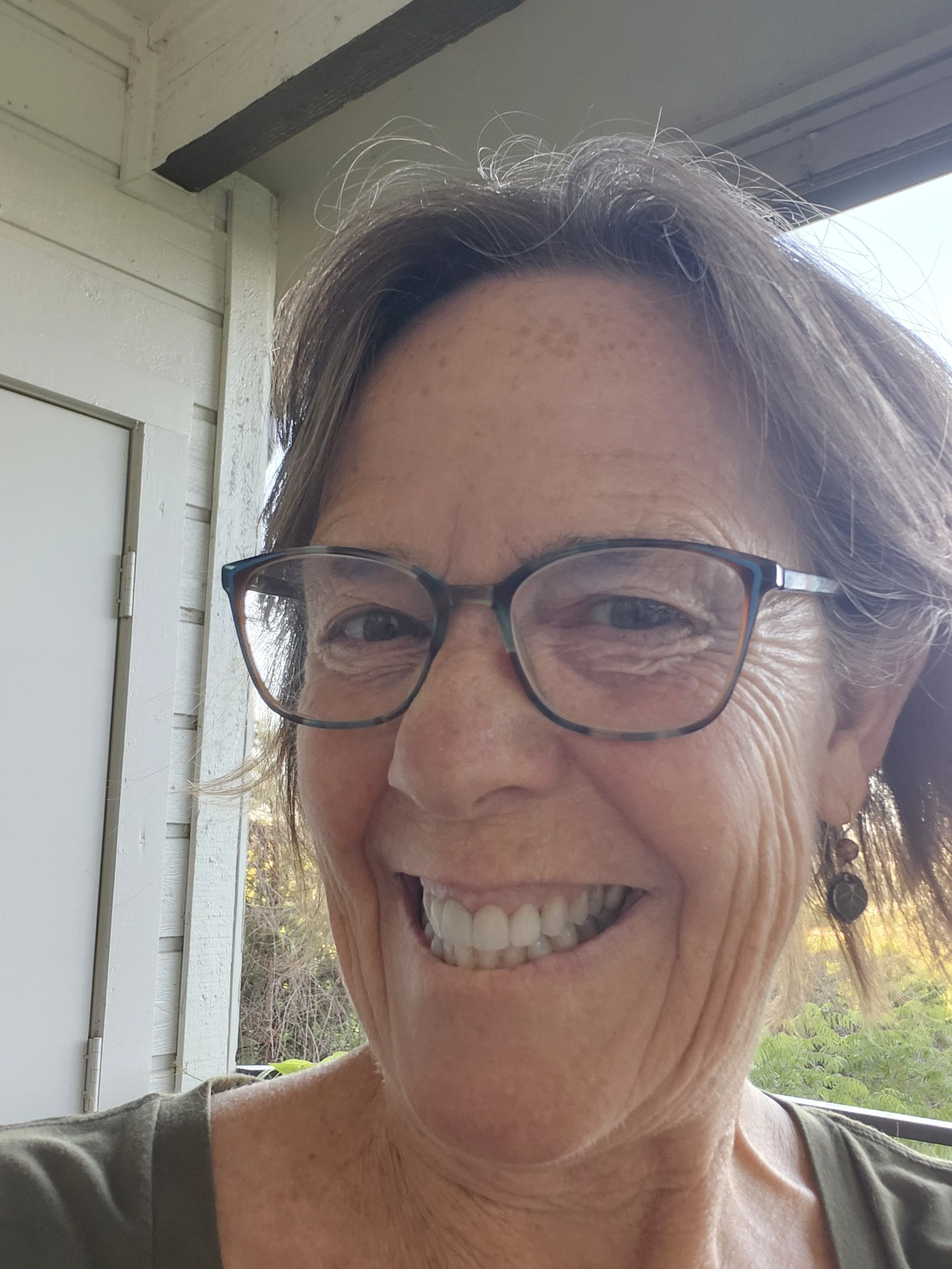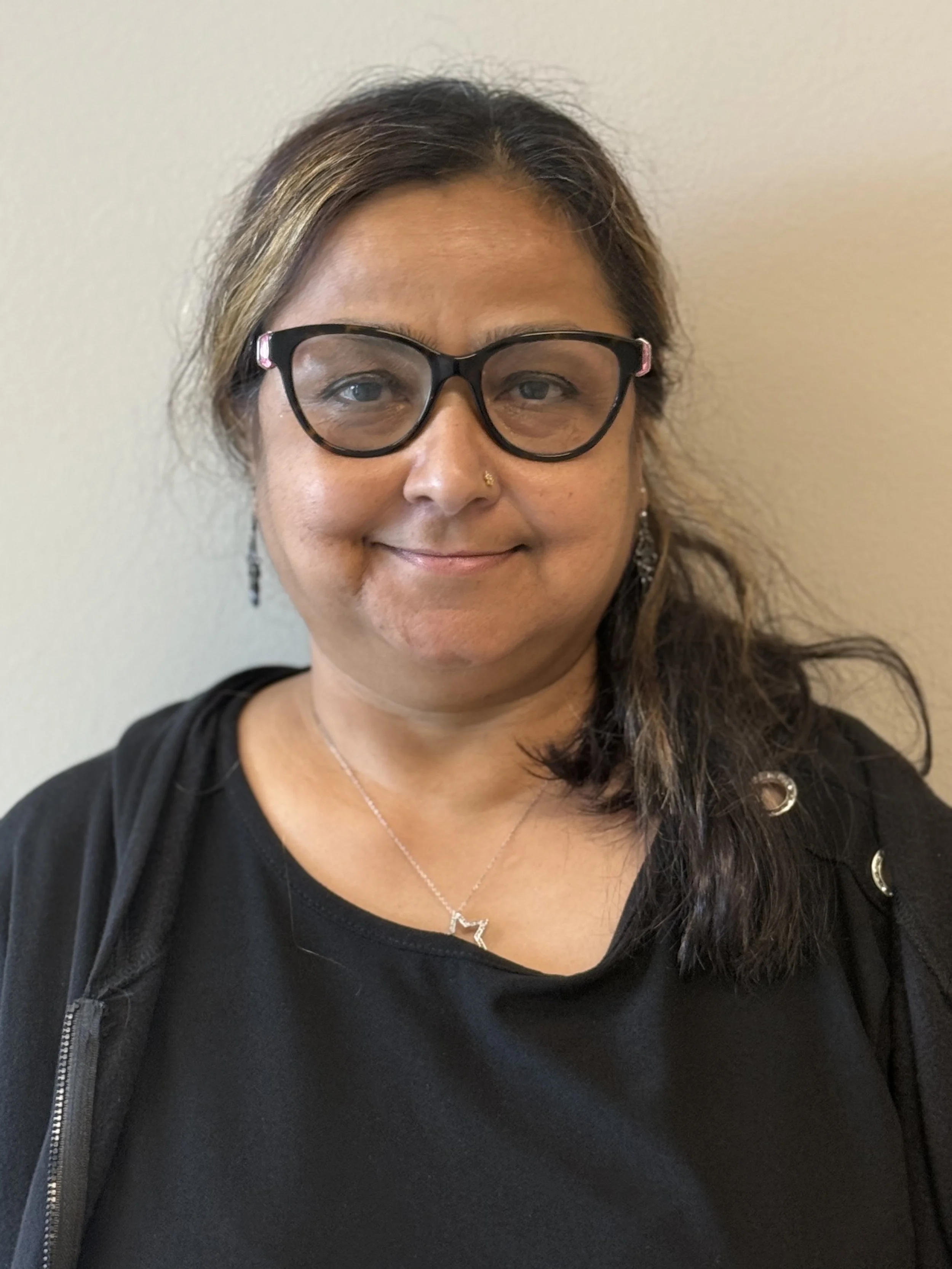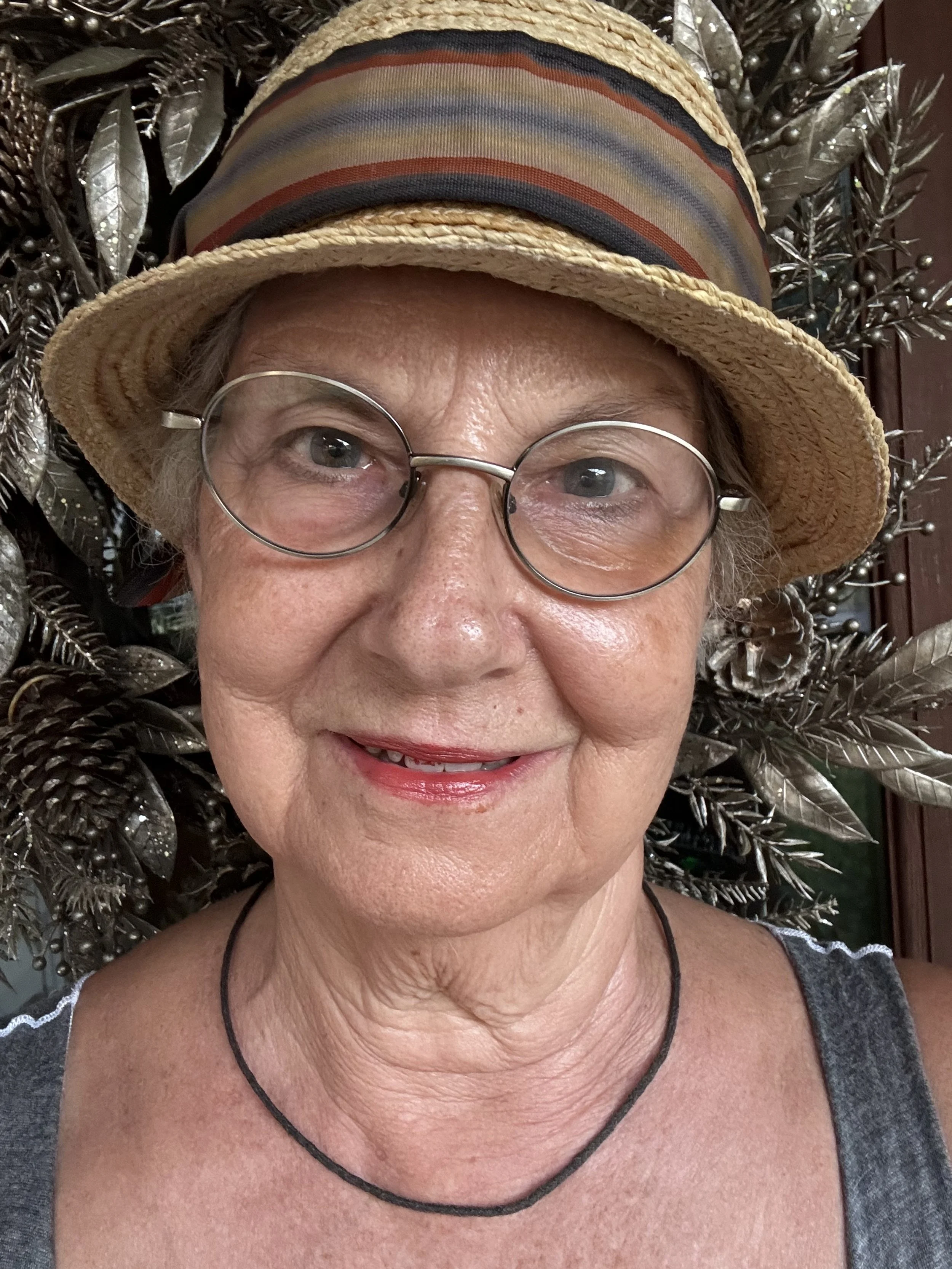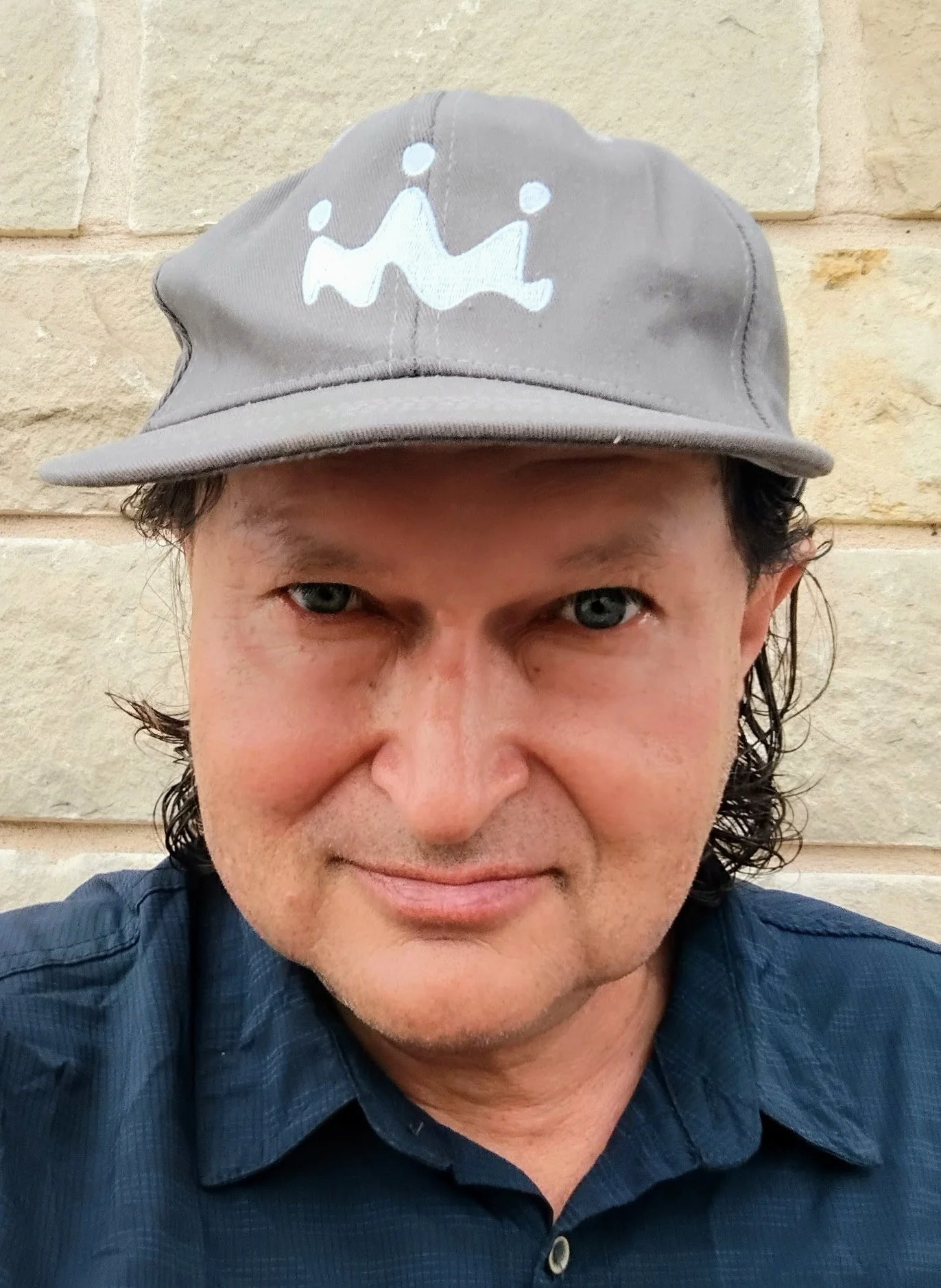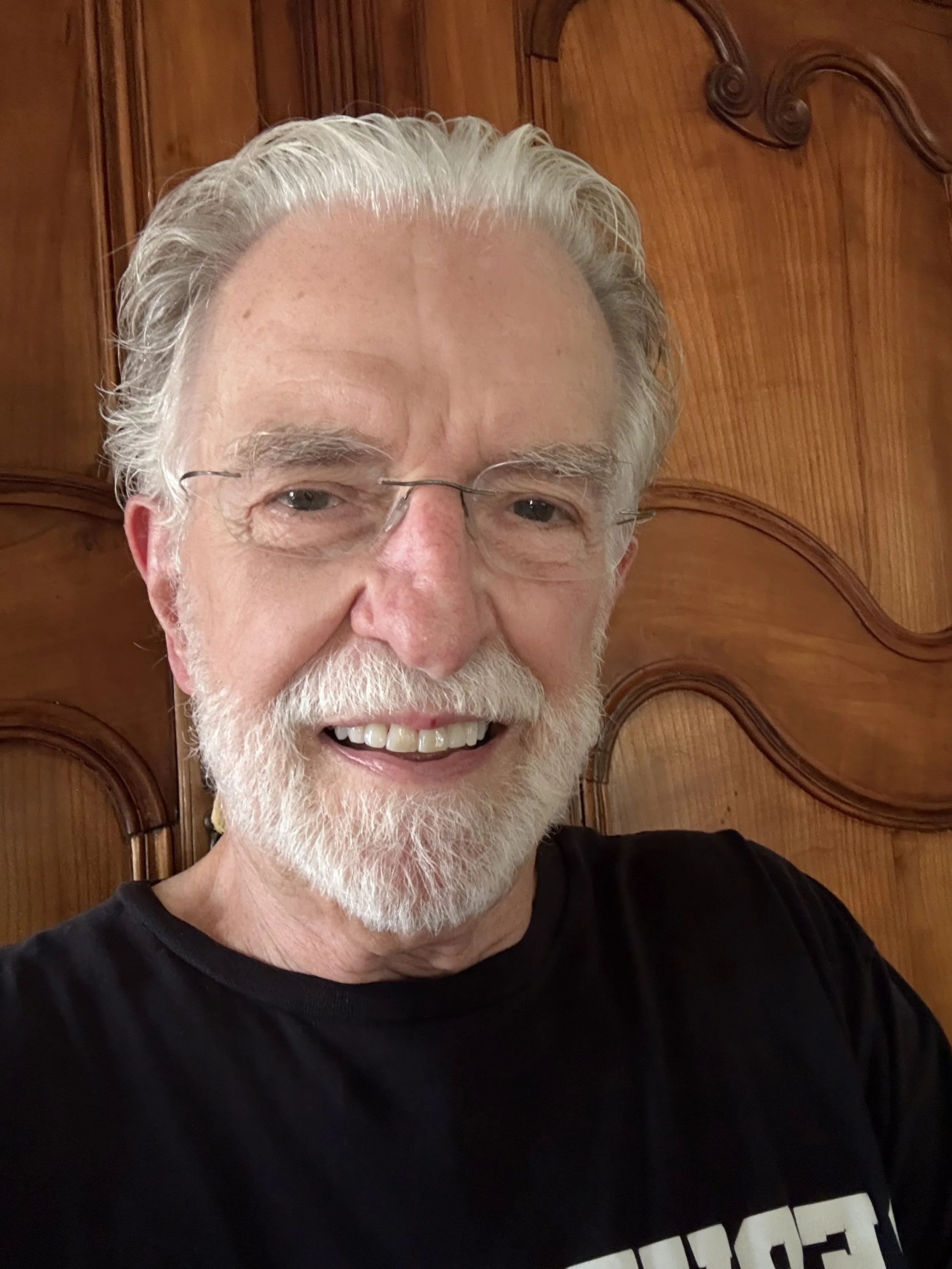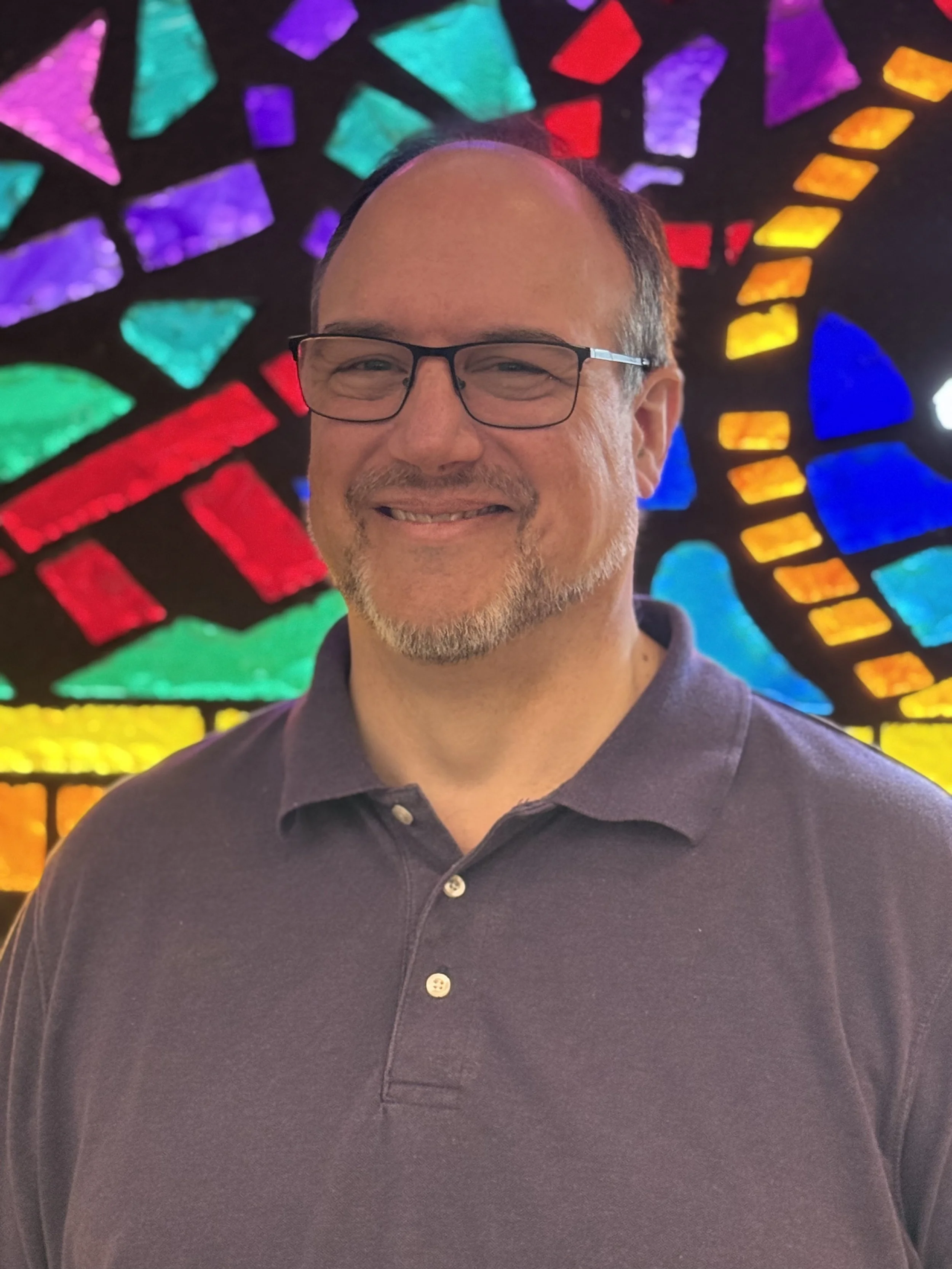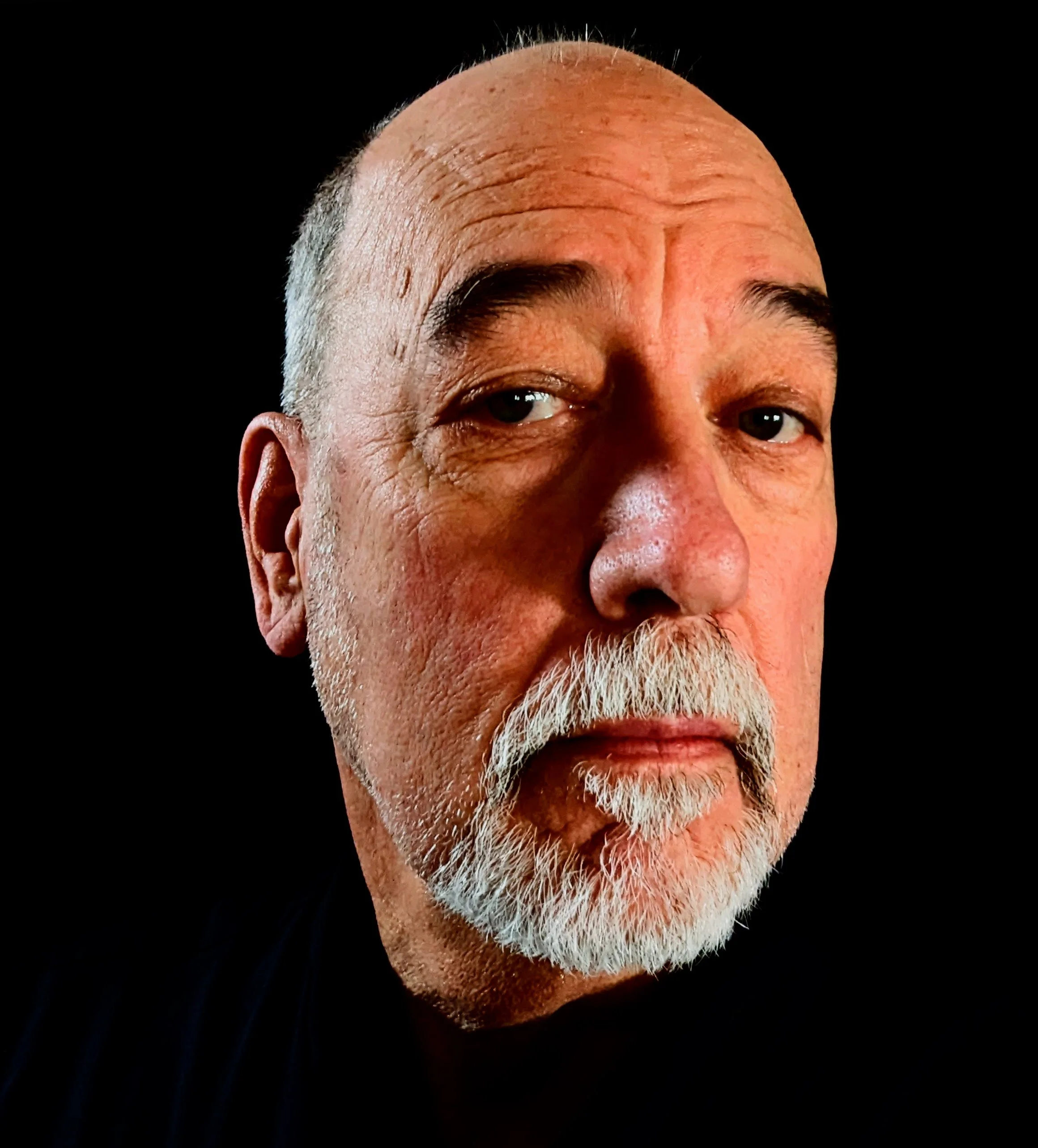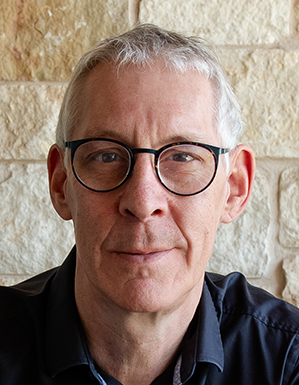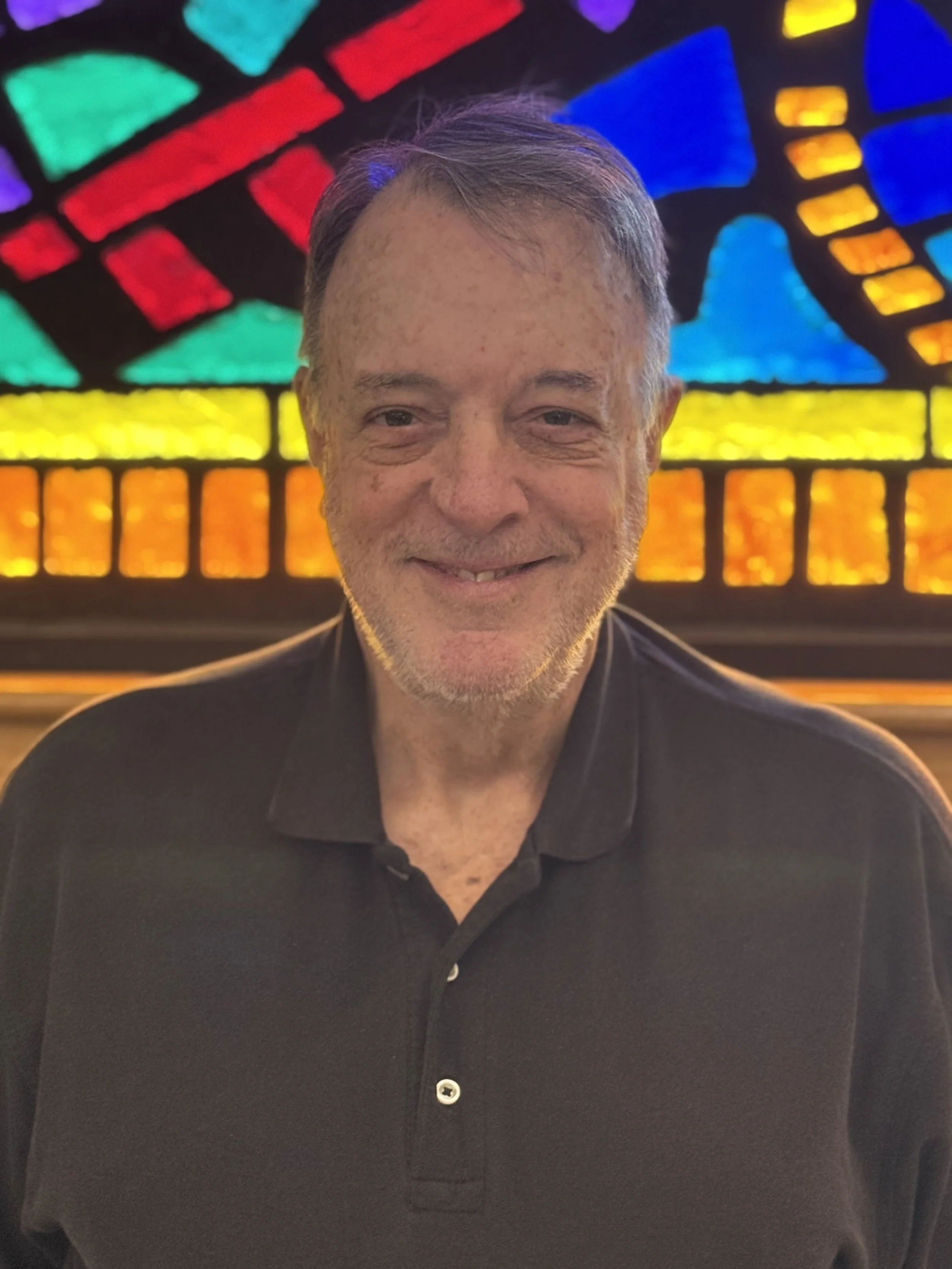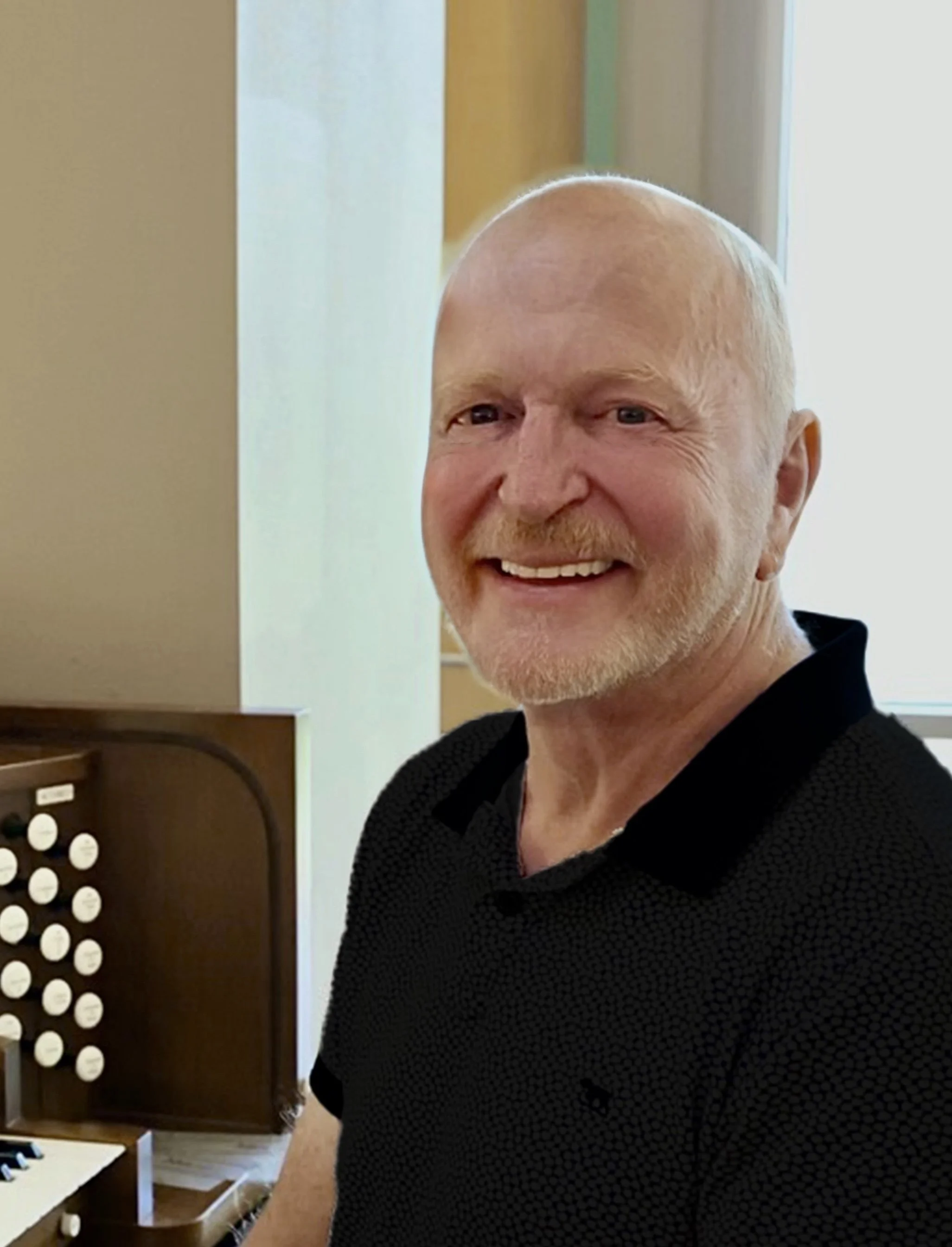Inversion Coda presents
Dream a Little Dream
Inversion is a music organization that focuses primarily on new music and music by living composers. We create impactful art in the heart of Texas by harnessing the power of music to tell stories that matter, foster connection and healing, and amplify voices that need to be heard.
Coda is our non-auditioned community choir for singers 50 and up. This special group highlights the beauty of the human voice undergoing many seasons of change, and the desire to keep on creating meaningful music and sending art out into the world with a community of like-minded humans.
Katrina Saporsantos, conductor
Benjamin Dia, piano
* indicates world premiere performance
Full program PDF here
Program
Sleep Now. I Am Here.
-
Text: Rudyard Kipling | Music: Eric Whitacre
In the spring of 2004, American composer Eric Whitacre participated in an ASCAP Musical Theater Workshop that was the brainchild of legendary composer Stephen Schwartz. They developed a friendship after that workshop, and soon after that, Schwartz recommended Whitacre to a film studio who was looking for an animated feature they were creating. The film was going to be based on Rudyard Kipling’s The White Seal, which begins with the mother seal singing softly to her young pup. Whitacre set the opening poem Seal Lullaby, had his wife record it, and then dropped it off at the studio. Nothing came of that venture as the studio decided to make Kung Fu Panda instead but in 2008, thanks to a commission to turn this into a choral piece by the Towne Singers, a non-auditioned community choir in Pasadena, CA, this song now lives among the world’s most treasured choral lullabies.
Oh! hush thee, my baby,
The night is behind us,
And black are the waters that sparkled so green.
The moon, o'er the combers,
Looks downward to find us
At rest in the hollows that rustle between.Where billow meets billow,
There soft be thy pillow;
Ah, weary wee flipperling, curl at thy ease!
The storm shall not wake thee,
Nor shark overtake thee,
Asleep in the arms of the slow-swinging seas. -
Text: Thomas Dekker, Henry Chettle, and William Haughton (adap) | Music: Traditional; arr. Ben Parry
“Golden Slumbers”, originally called “Cradle Song”, is a poem written by English dramatist Thomas Dekker first mentioned in 1599. This became part of Dekker’s, Henry Chettle’s, and William Haughton’s play Patient Grissel in 1603. It is unclear whether Dekker also wrote the melody or if it already was an existing tune, but multiple composers like W. J. Henderson, Peter Warlock, Charles Villiers Stanford, Alfredo Casella, and John Lennon and Paul McCartney have set these words to music. While the version by the Beatles is musically their own (specifically McCartney’s), their usage of the Dekker poem brought around an overnight resurgence of support for this 17th century lullaby, and it has remained a popular cradle song to the present day.
Golden slumbers kiss your eyes
Smiles awake you when you rise
Sleep, pretty darling,
Do not cry,
And I will sing a lullaby
Care you know not, therefore sleep,
While I o’er you watch do keep,
Sleep, pretty darling,
Do not cry
And I will sing a lullaby -
Text: Traditional Bicolano | Music: Traditional Bicolano; arr. George Hernandez
Solo: Dorothy Browning
“Caturog na, Nonoy” is a lullaby from the Bicol Region of the Philippines, and is sung in the Bicolano language. In Bicolano, “Nonoy” is a term of endearment for a little boy. This lullaby is sung by someone whom the little one looks for to soothe them to sleep–a parent, guardian, or another older person with whom the child feels safe. George Hernandez, an alum of the world-renowned Philippine Madrigal Singers, who arranged this song, shares, “In the remote and poor areas of the Philippines, radios were not available. So singing lullabies was an everyday practice to help children fall asleep… So this song was sung to us in the stillness and quietness of the afternoon by a voice, barely above a whisper, gently lulling us to sleep.”
Caturog na, Nonoy ta mapaduyan ka,
Sleep now, little one, I will gently rock your cradlePiyonga na Nonoy ang duwa mong mata
Close now, little one, your two little eyesCasubago Nonoy na ako da ipa
Earlier, little one, when I was not aroundHinanap mo ako ta mapaduyan ka.
You looked for me so I could lull you to sleep.
Sleep Now and Dream.
-
Text and Music: Billy Joel; arr. Philip Lawson
Billy Joel’s song “Lullabye (Goodnight, My Angel)”, the third single from his 1993 album River of Dreams, was initially meant to be a prelude to the album’s title track. The lyrics were about a man who had lost his faith, and these words were translated into Latin because it was meant to be sung in the style of a Gregorian chant. He later removed this from the final version of the song, deciding to write lyrics to the melody that reflected his relationship with his then-seven-year-old daughter Alexa Ray. In it, he recognized that reassuring a child that they are not alone or could be abandoned at any point is very important for their well-being. In a 2001 masterclass at the University of Pennsylvania, Joel narrates the story behind it: `She goes “Daddy, what happens when you die?” And I told her what I really believed. And what I really believe is, what happens when you die is you go into other people’s hearts, you never really go away. The people that you knew, you go into the rest of their lives.’
Goodnight, my angel
Time to close your eyes
And save these questions for another day
I think I know what
You've been asking me
I think you know
What I've been trying to say
I promised I would never leave you
And you should always know
Wherever you may go
No matter where you are
I never will be far away
Goodnight, my angel
Now it's time to sleep
And still so many things I want to say
Remember all the songs
You sang for me
When we went sailing
On an emerald bay
And like a boat out on the ocean
I'm rocking you to sleep
The water's dark
And deep inside this ancient heart
You'll always be a part of me
Goodnight, my angel
Now it's time to dream
And dream how wonderful
Your life will be
Someday your child may cry
And if you sing this lullaby
Then in your heart
There will always be a part of me
Someday we'll all be gone
But lullabies go on and on
They never die
That's how you
And I will be -
Text: Paul Laurence Dunbar | Music: Rollo Dilworth
“When Dreams Take Flight” is based on the poem Dreams by Paul Laurence Dunbar, one of the first African American poets to gain national recognition. This song begins with singers repeating the word “Fly” as individuals step forward to articulate their dreams, speaking them into existence. Dreams mean so much to us, especially as children, but as we know, achieving them isn’t easy; it is never a linear path. And yet there is power held in the presence of hope– that those dreams can come true somehow, over time, or that they can evolve into something far greater than we ever could have imagined.What dreams we have and how they fly
Like rosy clouds across the sky;
Of wealth, of fame, of sure success,
Of love that comes to cheer and bless;
And how they wither, how they fade,
The waning wealth, the jilting jade––
The fame that for a moment gleams,
Then flies forever,––dreams, ah—dreams!Of burning doubt and long regret,
O tears with which our eyes are wet,
Heart-throbs, heart-aches, the glut of pain,
The somber cloud, the bitter rain,
You were not of those dreams- ah! well,
Your full fruition who can tell?
Wealth, fame, and love, ah! love that beams
Upon our souls, all dreams-ah! dreams.
Intermission
I’ll Reap What I Sow
-
Words: Madeline S. Bridges | Music: Reginal Wright
Commissioned by the 2020-2021 TMEA Region IX High School Mixed Choir, composer and educator Reginal Wright expertly sets to music the words of Madeline S. Bridges, the pen name of American poet Mary Ainge de Vere. Bridges wrote during a period of significant social and cultural change in the late 19th and early 20th centuries, often reflecting the values and concerns of her era. In this poem, Bridges states the reciprocity of positive human conduct and actions, and, with Wright choosing to repeat the phrase “And the best will come back to you” over and over again, that message is very much emphasized.
There are loyal hearts, there are spirits brave,
There are souls that are pure and true;
Then give to the world the best that you have,
And the best will come back to you.
Give love, and love to your life will flow,
A strength in your utmost need;
Have faith, and a score of hearts will show
Their faith in your work and deed.
Give truth, and your gift will be paid in kind,
And honor will honor meet;
And the smile which is sweet will surely find
A smile that is just as sweet.
Give sorrow and pity to those who mourn;
You will gather in flowers again
The scattered seeds from your thought outborne
Though the sowing seemed but vain.
For life is the mirror of king and slave,
'Tis just what we are and do;
Then give to the world the best that you have
And the best will come back to you. -
Text: Margaret Noodin | Music: Adrienne Inglis (ASCAP)
“Asleep in a Blanket Spun of Energy” for a cappella mixed chorus evokes vivid imagery of Margaret Noodin’s poem We Are Returning Always. Honoring the composer’s Ojibwe ancestors, the piece sets all of the English text and a few key words of the Anishinaabemowin text from the bilingual poem that beautifully captures a glimpse into the natural and celestial wonders of the Ojibwe world. Laced with ethereal special effects, the music reflects a taste of the syncopated embellished singing, pentatonic melodies, steady drumbeat characteristic of Ojibwe music. With an earlier electronics and voices version that premiered online in 2020, this piece was revised for cappella voices in 2023, and is receiving its premiere tonight.When the moon is full
the center of grandmother’s eye
becomes a mirror,
a ball of silver hair,
the spot of new skin
in the sky.The nebulae dance behind her
raspberry light
blueberry light
gas and dust
making new stars
and new stories.A dark hole discerned
is a different wilderness
everywhere
and nowhere
growing, expanding
while collapsing.And our song returns us
snakes and snow
twigs and twine
we are wise bright infants
asleep in a blanket
spun of energy.moshkine aapkizi [s/he is full, the moon]
biiskaabii [to return]
babaamishimo [travel around while dancing]
Founder, composer, and performer with Inversion Ensemble of Austin, Texas, award-winning Latina composer Adrienne Inglis also serves as principal flute with the Central Texas Philharmonic and flutist with flute/harp duo Chaski. She has music degrees from Lewis and Clark College and the University of Texas at Austin. Frequently drawing on her family history and Ojibwe, Venezuelan, and Scottish roots, Inglis composes choral, chamber, orchestral music and a little opera. An avid birder and environmentalist, she lives in the rural hill country of Central Texas.
www.adrienneinglis.com
-
Text and Music: Alma Bazel Androzzo (1944); arr. Andre Thomas
Soli (in order of appearance): MelodyAnn Fullylove, Stephen Adams, Jennifer Koppe, Janice Alter Beavers
The American composer, pianist, and songwriter Alma Bazel Androzzo wrote the great gospel anthem “If I Can Help Somebody” while doing her time as a missionary in Pittsburgh during the final years of the Great Depression. While it was written as a Christian hymn, its essential message of living a meaningful life by helping others resonates universally, no matter someone’s religious beliefs (or lack of). This version of the song was arranged by the composer and conductor Andre Thomas, who dedicated this to Dr. Anton Armstrong in celebration of his 30th year as conductor of the St. Olaf Choir.
If I can help somebody as I pass along,
If I can cheer somebody with a word or song,
If I can show somebody that they're traveling wrong,
Then my living shall not be in vain.If I can do my duties as a Christian ought,
If I can bring back beauty to a world up wrought,
If I can share love's message like Jesus taught,
Then my living shall not be in vain.Chorus:
Then my living shall not be in vain,
No my living shall not be in vain
If I can help somebody as I go along,
Then my living shall not be in vain. -
Text: Frances Havergal and adapted from Rev. 21:5-6 | Music: Elaine Hagenberg
Elaine Hagenberg’s “All Things New” is a poignant choral work setting the words of Frances Havergal and Revelation 21 to music. With its shimmering piano lines and the simplicity of its melody, this piece also highlights the power of the unison, a peaceful and anchoring musical device during a time of painful loss. Hagenberg shares, `“I was immediately drawn to Frances Havergal’s beautiful text, and after the loss of my grandmother, Martha Elaine, it became a source of quiet strength and healing. The line “home after wandering, praise after tears” resonated deeply, as it poignantly captures the essence of rest and peace. Drawing from Revelation 21, the piano accompaniment mirrors the gentle flow of “springs of living water.” It is my hope that this piece brings encouragement and solace to those who hear it.’
Light after darkness, gain after loss,
Strength after weakness, crown after cross;
Sweet after bitter, hope after fears,
Home after wandering, praise after tears.Alpha and Omega,
beginning and the end,
Love is making all things new.
Springs of living water
shall wash away each tear,
Love is making all things new.
Sight after mystery, sun after rain,
Joy after sorrow, peace after pain;
Near after distant, gleam after gloom,
Love after wandering, life after tomb.”
I’m Coming Home
-
Text: Michael Dennis Browne | Music: Tune - “Prospect” from Southern Harmony 1835; adapated by Stephen Paulus
Solo: Kristen Thomas
“In the Spring of 2001 I received a commission from the Dale Warland Singers to write a short "folk" type choral arrangement. I had discovered a tune in a folk song book called "The Lone Wild Bird." I fell in love with it, made a short recording and asked my good friend and colleague, Michael Dennis Browne to write new words for this tune. The tune is taken from The Southern Harmony Songbook" of 1835. It is pentatonic and that is part of its attraction. Pentatonic scales have been extant for centuries and are prevalent in almost all musical cultures throughout the world. They are universal. Michael crafted three verses and gave it the title "The Road Home." He writes so eloquently about "returning" and "coming home" after being lost or wandering. Again, this is another universal theme and it has resonated well with choirs around the world as this simple little a cappella choral piece has become another "best seller" in our Paulus Publications catalogue and now threatens to catch up with "Pilgrims' Hymn." It is just more evidence that often the most powerful and beautiful message is a simple one.” – Stephen Paulus
Tell me, where is the road
I can call my own,
That I left, that I lost,
So long ago?
All these years I have wandered,
Oh, when will I know
There's a way, there's a road
That will lead me home?
After wind, after rain,
When the dark is done.
As I wake from a dream
In the gold of day,
Through the air there's a calling
from far away,
There's a voice I can hear
That will lead me home.
Rise up, follow me,
Come away, is the call,
With the love in your heart
As the only song;
There is no such beauty
As where you belong:
Rise up, follow me,
I will lead you home. -
Text: Christina Rossetti | Music: Ralph Vaughan Williams
“Rest” was composed in 1902 by the English composer, setting to music the words by Christina Rosetti from a collection of her poetry Goblin Market and Other Poems. The song, a choral masterpiece full of rich harmony throughout, is a great example of how Vaughan Williams began pushing the boundaries of mixed voice choirs. He uses extremely nuanced word painting throughout in his usage of different musical elements. There are so many texture, color, and dynamic shifts in this piece that support the powerful words Rosetti has written–a Petrarchan sonnet reframing death as something not to be feared but as a means for peaceful escape from life’s exhaustion and struggles.
O Earth, lie heavily upon her eyes;
Seal her sweet eyes weary of watching, Earth;
Lie close around her; leave no room for mirth
With its harsh laughter, nor for sound of sighs.
She hath no questions, she hath no replies,
Hushed in and curtained with a blessed dearth
Of all that irked her from the hour of birth;
With stillness that is almost Paradise.
Darkness more clear than noon-day holdeth her,
Silence more musical than any song;
Even her very heart has ceased to stir:
Until the morning of Eternity
Her rest shall not begin nor end, but be;
And when she wakes she will not think it long. -
Text: Robert Richardson and Mark Twain (Samuel Langhorn Clemens) | Music: Dan Forrest (ASCAP)
As Torrents in Summer is an a cappella excerpt from the epilogue of Sir Edward Elgar’s 1896 cantata, Scenes from the Saga of King Olaf, Op. 30.The text is an adaptation of a Henry Wadsworth Longfellow poem telling the story of Olaf Tryggvason, the medieval king of Norway, who brought Christianity to the country. In the song, the force of a far-off summer rainstorm replenishing dry riverbeds becomes a metaphor for the unseen hand of God.
Warm summer sun, shine kindly here
Warm southern wind, blow softly here
Green sod above lie light, lie light
Good night, dear heart
Good night, good night
Warm summer sun (Warm summer sun)
Shine kindly here (Shine kindly here)
Warm southern wind, blow softly here (Softly here)
Green sod above lie light, lie light
Good night, dear heart
Good night, good night
Good night, dear heart
Good night, good night
Dream a Little Dream Artists
Katrina Saporsantos,
conductor
Benjamin Dia,
piano
SOPRANOS
Janice
Beavers
Jennifer
Inglis Hudson
Kim
Vitray
Mae
Dinan
Melody
Fullylove
Seaufy Peg
Frey
Camille
Pridgen
Andrea
Sieh
Cecily
Johnson
Carolanne
Fougerat
Dorothy
Browning
Diane
Skeel
Gul
Sadiq Afshan
Glenda
Pittman
Jeri
Piehl
Jennifer
Koppe
ALTOS
Kristen
Thomas
Lee
Frierson-Stroud
Nancy
Ebert
Rachel
McInturff
Holly
Salinas
Adrienne
Inglis
Jennifer
Hymel
Huma
Ahmad
Karen
Kazmierczak
Karen
Johnson
Kathy
Leighton
Kathy
Hymel
Mary Lou
Dye
Margaret
Hilliard
TENORS
Amado
Brown
Alex
Rendahl
Jonathan
Riemer
Casey
Papovich
Paul
Stubbs
Marc
Tarabbia
Sherrille
Reed
Rene
Simone
BASSES
Rob
Johnson
Steven
Young
Chris
Dinan
Andrew
Grainger
Ian
Rogers
Gary
Godfrey
John
Berry
Jim
Nasby
Richard
Yu
Kent
Burress
PRODUCTION
Elise Etherton, Audio Engineer
Jack Kloecker, Photo & Videography
Maureen Broy Papovich, Front of House
Zoe Riemer, Stage Assistant
volunteers: Jennifer Graber, Jenny Houghton, Jonah Papovich, Henry Leighton,
Knoel Babin, Rodney Pratt, Susan Dixon, Tucker Hymel-Pratt
INVERSION PERSONNEL
STAFF
Katrina Saporsantos, Interim Artistic Director
BOARD OF DIRECTORS
Jonathan Riemer, President
Jenny Houghton, Interim Treasurer
Guillermo Delgado
Kathy Leighton
Meredith Ware Morrow
Marketing Consultant
Lester Tanquilut
DONORS
Many thanks to our individual, business, and sustaining donors going into our seventh season! For a current list of donors, visit the donation page on our website.
Many Thanks to
Our Inversion Cares partner, Casa Marianella, that welcomes displaced immigrants and promotes self-sufficiency by providing shelter and support services.
Our Arts partner, ATX Artists for Social Impact, a grassroots, multidisciplinary performing arts nonprofit that mobilizes artists in solidarity with their local Austin communities to strengthen each other through performance, education, artistic outreach, and community service.
Our venue St. James Episcopal Church of Austin, an inclusive, multicultural church with African American roots in East Austin, for their help and support.
Rev. Eileen O’Brien, rector
Aimee Estep, parish administrator
Diana Espinosa, office assistant
THANKS FOR COMING!

